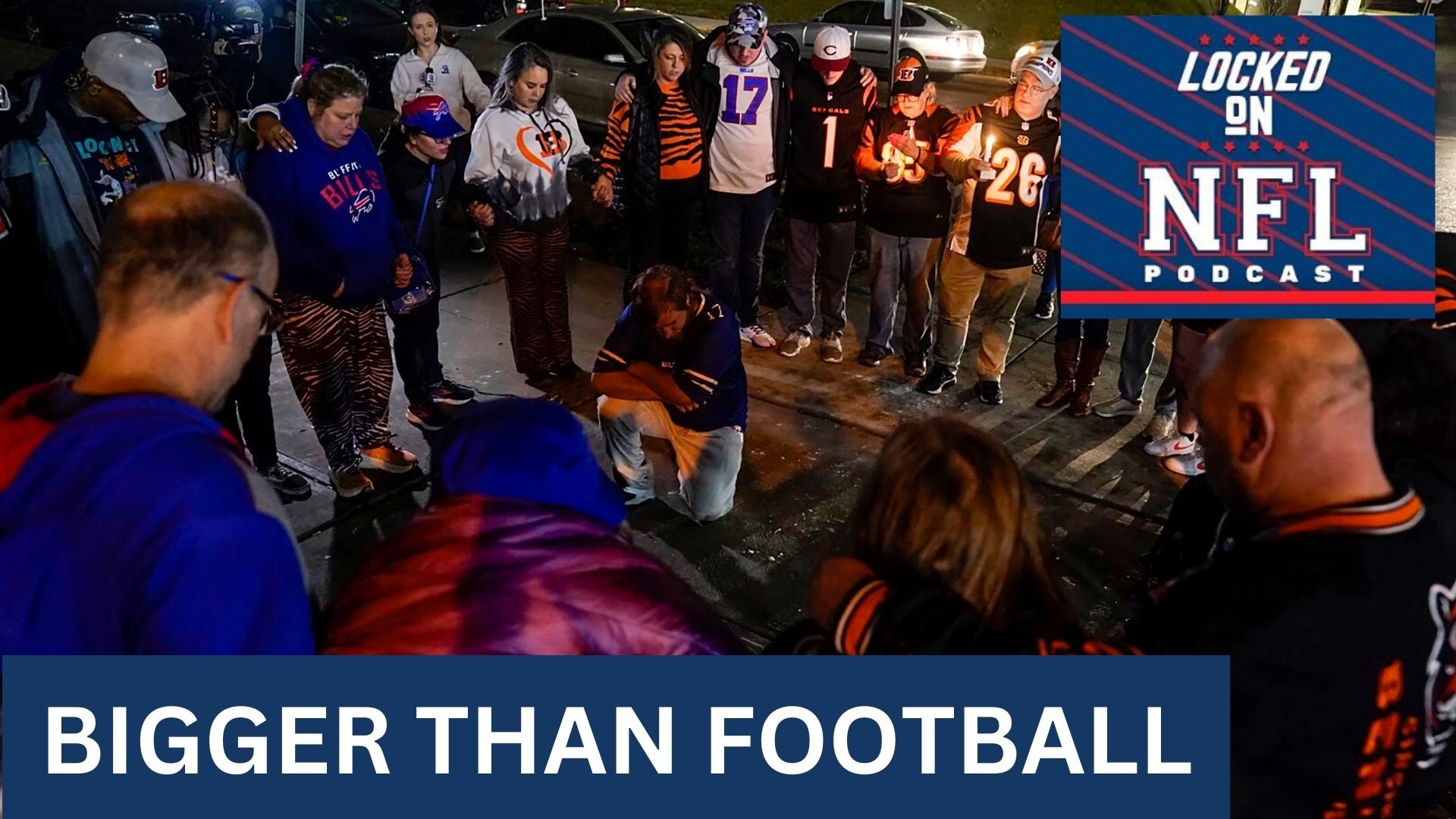WASHINGTON — All 32 NFL teams have joined together for a social media tribute to Buffalo Bills' Damar Hamlin, who remained in critical condition Tuesday after his heart stopped during Monday Night Football.
One-by-one, each NFL team, along with the league and the players association, updated their respective Twitter profile pictures to feature the words "Pray for Damar," in the style of Hamlin's No. 3 jersey.
The Bills' safety suffered cardiac arrest after making a tackle in Monday's game against the Cincinnati Bengals. After CPR was performed on the field, he was rushed to the hospital and the team announced Tuesday that the 24-year-old Hamlin spent the night in intensive care and remained in critical condition.
His family issued a statement expressing gratitude for the outpouring of support, while also asking everyone to keep Hamlin in their prayers.
Here are some of the NFL team tributes:
Buffalo Bills
Baltimore Ravens
Cleveland Browns
Dallas Cowboys
Minnesota Vikings
Denver Broncos
San Francisco 49ers
New Orleans Saints
Houston Texans
Indianapolis Colts
Jacksonville Jaguars
Kansas City Chiefs
Las Vegas Raiders
Los Angeles Chargers
Miami Dolphins
New England Patriots
New York Jets
Pittsburgh Steelers
Tennessee Titans
Green Bay Packers
Detroit Lions
Chicago Bears
Carolina Panthers
Atlanta Falcons
Arizona Cardinals
Washington Commanders
Tampa Bay Buccaneers
Seattle Seahawks
Philadelphia Eagles
New York Giants
Los Angeles Rams
NFL Players Association
What caused Damar Hamlin's cardiac arrest?
It's unclear what caused Hamlin's cardiac arrest. As an NFL player, he regularly exercises and eats healthy meals, so it is unlikely to have been caused by some of the common risk factors such as high cholesterol or high blood pressure.
What is commotio cordis?
It's possible Hamlin suffered a condition known as "commotio cordis," which is an injury associated with blunt-force trauma to the heart. Although infrequent, it can cause sudden cardiac arrest in young athletes. According to the National Library for Medicine, the condition is usually caused by a hard strike during physical activity.
The condition only happens during a rare set of circumstances: when a sharp hit lands directly over the heart “at the exact wrong location at the exact wrong timing” during the heart’s rhythm cycle, said Dr. Rod Passman, director of the center for arrythmia research at Northwestern University’s Feinberg School of Medicine.
The Associated Press contributed to this report.

